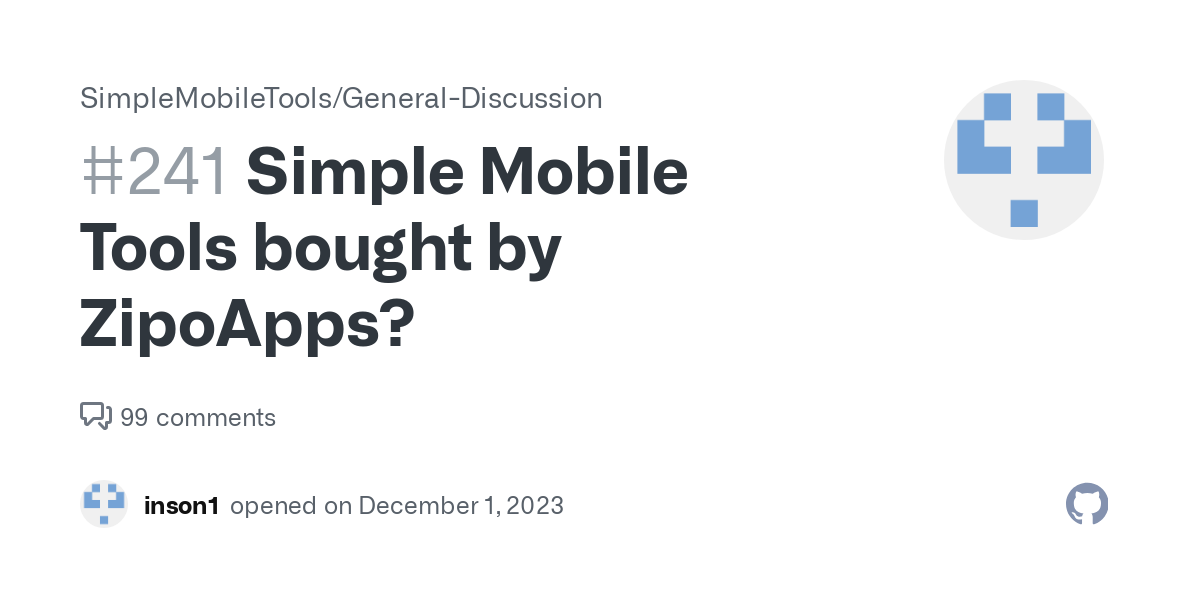- @Imprint9816@lemmy.dbzer0.com
- deleted by creator
- 5 Posts
- 127 Comments
I do this as well. Bought one from njal.la for $15/yr
I’d actually rate a proper Lineage OS install of 4 whole Android versions ago to be more private than stock.
Its always the lineageos stans that can’t take the truth.
Would a research paper change your mind?
https://infosec.exchange/@rene_mobile/113431029855652363
According to this table, Google Pixels beat other devices listed there by far. Even Samsung S-series doesn’t look good
What about a security expert?
Overall, LineageOS does not leave a privacy-friendly or truly secure impression
I have used both Mullvad and AirVPN for extended periods of time.
Mullvad is the gold standard. If you don’t need port forwarding and privacy is your biggest concern there is no better choice. Check out their server infrastructure, and tools such as DAITA / Leta / Mullvad browser to see how much they contribute to the privacy community.
Mullvad is also a much better UX. AirVPN Eddie client feels like its stuck in 1998.
Both are good VPNs - Mullvad just happens to be the best. The only real issue, from a privacy perspective, with AirVPN is they refuse to be audited so you are stuck just trusting they do what they say but OTOH they have been around for a long time and never given a reason not to be trusted.
If you do need port forwarding, AirVPN probably has the best implementation of it. They also have customizable DNS on a per device level which is also pretty cool.

LineageOS implementation of this is poorly done and will leak data outside of your VPN tunnel.
https://github.com/mullvad/mullvadvpn-app/issues/4016#issuecomment-2422616515
I doubt it. I think OP wanted upvotes and didn’t read carefully. Something like “tor user de-anonymized via retired app” would of been more accurate.
This is another great lesson that even the best privacy tools can’t protect a user from their own bad opsec.
It just sucks as a lot of Lemmy users will just read the title and assume its true and then tell their friends tor is no longer safe.

I think your misinterpreting your own social anxieties as being made to feel like an “outcast”.
The fact of the matter is it’s just not normal to question why a store wants your phone number and I’m sure the cashier was taken aback by the whole situation.
Convenience, not privacy, is the norm. There is going to be tons and tons of awkward social interactions when you go against social norms. Accept it and be proud your advocating for your privacy.

Its a pretty low bar but Android is going to be more private then Windows. Google having privileged access to your phone is still terrible but Windows doesn’t really have any privacy protections by default. Android at least does things such as sandboxing its non privileged apps. It also provides a lot better hardware security for your data then most Windows devices would…outside of secure core pcs its pretty trash for hardware privacy in the Windows world.
Mullvad, IVPN, and Proton are the top tier for privacy respecting VPNs.
Windscribe and AirVPN are also decent options but do not have the audit history to be in the same tier as the other 3.
Most other VPNs people mention either have a dubious history or no real proof of their claims to be privacy respecting.

It sounds like they just report the number they are sure of at the time and update the filing later. Very high chance the number of affected is much more then 1.3M - the number of unique email addresses alone makes it pretty clear its more.
The situation doesn’t come without precedent either. It’s not uncommon for organizations disclosing data breaches with US state officials to update those filings down the line as investigations into potentially compromised data continue.

Would be basically impossible. Most of what is leaked these days is just rebundled from other leaks. For example if you listened to MB on this its only a small % of data from new leaks that actually ends being new info.
Any attempt of doing something like this would prove to be trash data pretty quickly and would not have a major effect.
That’s fair, and the reasons why someone buys a phone is a personal choice.
I would suggest with things like a headphone check that, while its annoying to buy an adapter (usb-c to headphone) it may be worth the cost vs sacrificing something like hardware security.
Sadly a lot of the time consumers are forced to choose between security and privacy or convenience.
If the security benefits of a pixel is less important then the fact Google made it then GOS is simply not meant for you.
Its silly people complain about it being only compatible for pixels but never seem to blame other android brands for making significantly less secure phones. The responsibility should be put on phone makers to create secure phones that meet GOS requirements, not to expect GOS to make a less secure OS.
The whole AOSP environment is very Google centric so its pretty weird to think because your not buying a pixel that you are somehow avoiding Google.

I am not going through this wall of BS point by point but here is a fine example of how I know you have no clue what your talking about…
One place I strongly disagree with Graphene OS is the sandboxed Google services framework. They say having Google in a sandbox is more secure. It may be more secure, but it isn’t going to be as private as MicroG.
MicorG has privileged access to you phone, it literally has no privacy benefits over even standard Google Play. You are just choosing to trust MicroG with that level of access instead of Google.
Honestly just don’t use GOS if you don’t believe in its benefits or at least sack up and post this on their official forum.



Have you tried using a P2P exchange such as Haveno